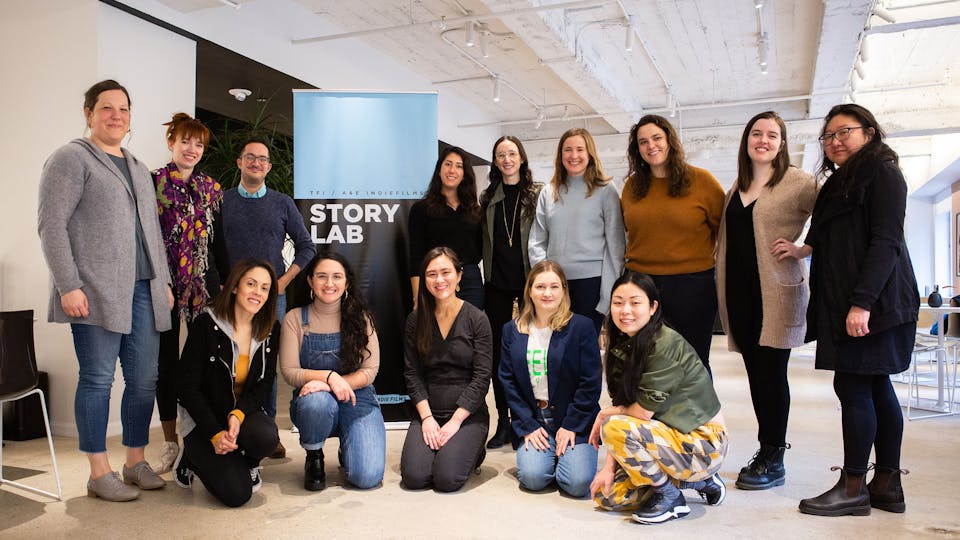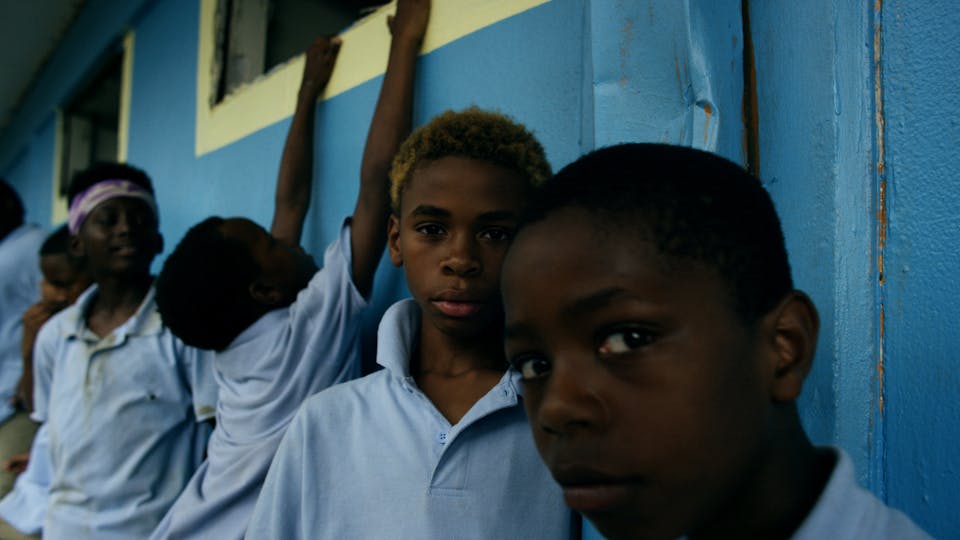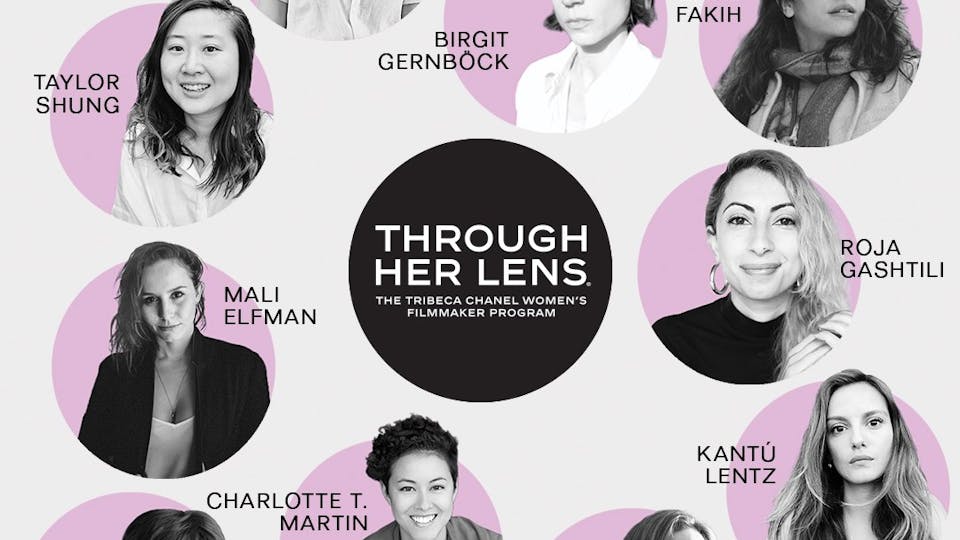Reframe Spotlight: Q&A with 'Little Brother' Series Director Nicole Franklin

One of the Reframe Collection’s mains goals is to spotlight works that are inaccessible to large audiences, and Nicole Franklin and Jasmin Tiggett’s Little Brother shorts series is just the type of project that should be seen beyond film festivals and educational outreach. Conceived as an experiment of sorts to showcase new subject matter instead of rehashing old storylines fed to the mainstream media, Little Brother are 10 15-minute shorts that highlight African-American boys as they try to understand how to build relationships and profess love amongst the violent neighborhoods they live in. Developing the series with the help of author Dr. Raymond Winbush (The Warrior Method: A Parents’ Guide to Rearing Healthy Black Boys), Franklin and Tiggett’s first chapter, Little Brother: Things Fall Apart, looks at a group of boys living in Camden, New Jersey. With Thinks Fall Apart currently on Reframe® and chapter two coming soon, we emailed Franklin a few questions about the series and its future.


How did the Little Brother series come about? Where did the motivation come from? Little Brother is a 10-year, 10-chapter series focusing on young black men and their thoughts and expressions about love. This was motivated by the continuous stream of thought in this country that the men in our community are not seen as loving human beings. And, unfortunately, with all of the press about how black women are destined to be single because of this social dynamic (also not true), I thought a great way to approach this topic was to find out what young men think they know about love when they are just starting to enter adolescence. What are their influences? How do they see themselves as productive citizens and future romantic partners? Do they picture themselves as a member of a strong family unit when they get older? And what is causing them to think otherwise if their answers are in the negative? Why did you decide on a short film series instead of a feature film? Quite frankly, being that each film is meant to provoke dialogue in a public setting, 15 minutes was all we needed. Community talks, classrooms, training seminars and houses of worship were the intended audience. We have screened in churches, galleries, fraternity and sorority functions, during academic lunch programs…you name it. We are also fortunate to premiere each chapter at the every October. We fit right into the shorts program and there are other film festivals and showcases that appreciate the shorter length as well. How did you find your subjects? Each chapter has a unique approach to finding the boys. We definitely follow suit in casting the net wide and seeing who bites. In the case of Camden, New Jersey the town was small enough one of the starting points was City Hall—who, by the way, rolled out the red carpet for a film crew who actually set out to challenge their reputation of being a city with no hope. For our second chapter filmed in Chicago, Illinois, an incredibly forward thinking principal of a school was suggested to us by a well-known radio deejay, Harold Lee Rush, who is a friend of mine. Jasmin probably endured the most difficulty in our recent chapter, chapter three, filmed in St. Petersburg, Florida, when one of the executive directors of a recreational center whom she had been talking to for months left his position. So she had to now make her backup, a family center, the priority and still find replacements for half of the cast we lost with the first center. Why did you choose Camden, New Jersey for the first chapter? This started just as an experiment. The concept was so unheard of—which is disappointing—that I did not feel we could spend any money to get on a plane just yet. New York, where Jasmin and I both live, would have been convenient but there are so many social programs funded here and exposure to the arts that audiences would have probably presumed that of course these boys have love in their hearts. Camden, New Jersey was a place no one seemed to have an ounce of anything positive to say. And for our first city, I wanted to find somewhere in our own backyard, so to speak. This city popped into my head. I tend to speed by it when heading to Philly and not thinking much about it except for the horrible crime statistics that come out with its placement on the list of the nation’s most dangerous cities. If we could find love there, we would be a success and people would finally start listening to our black boys. The boys are called “handsome,” “gorgeous,” “so profound,” “so honest and sweet.” And the reaction from grown men definitely covers a range of emotions. Beyond the black community, people of all races seem captivated by the frankness of the young people. It’s interesting because the films have taken place in neighborhoods that are experiencing a high crime rate. In the first film we were able to show that first-hand, unfortunately, because the crew was attacked. The footage was still salvageable, so that scene opens the film. But because the boys in the film are asked to speak about what is important to them, audiences seem to forget the on-camera attack they’ve just witnessed and open themselves up to hearing what is really important to the survival of these young men. Usually a hug or a kind word from their parents makes the world seem better.
Not much has changed as far as the city of Camden still having a daily struggle with crime. The good news is that the children whose lives are spared grow older and there are angels surrounding them like our wonderful pied piper who brought us the young men, Mr. Sylvester Servance, and Ms. Cynthia Primas of The IDEA Performing Arts Center who find ways to keep them safe. Before you know it, it is time for college, and if the means are there, the young men and women are off to school to see what the world outside of Camden has to offer. Our hope is for fans of the film to donate to our website, for college assistance for our young men. Our young men from chapter one, Little Brother: Things Fall Apart, are growing up fast and stay busy and productive. We were able to catch up with a few of them. Our two brothers, Jasiri and Jeremiah, are football stars who took a break to go fishing this summer, and probably in an effort to outdo each other, made some big catches. Marcqui Hill has some fantastic news in that he is now a part of the Rutgers Future Scholars program. This is very special in that he was chosen by teachers in his school district for his academic excellence. Tyemir seems to be the one audiences gravitate toward the most because of how open he was about his Dad and having to still get that loving reassurance during his father’s incarceration. Tyemir has not seen his father lately but he is confident one day he will. In the meantime, he says he is helping his Mom stay focused and is a practicing Buddhist under the guidance of his Grandmother. Tyemir is looking forward to continuing his guitar lessons with famed Camden-born musician, Buster Williams, a renowned bassist who conducts a jazz camp at The IDEA Performing Arts Center. I spoke to Tyemir recently, and he told me “I’m just trying to stay focused and trying to be a better person…in sports, music, Buddhist meetings with my Grandmother and stuff like that.” This second chapter of the series has the camera accompanying young men during their walk home from school on the very active streets of Chicago's South Side. The Chicago youth discuss their thoughts on peer pressure, family dynamics, dating, the perceived media assault on their community and staying safe on the streets. Because many of the young men were not even allowed by their parents to walk at length on the streets any more, our cameras had to be discreet. So, is filmed entirely on the iPhone 4. We kept the crew quite small—myself, a sound person, the male mentor and a production assistant, and not all present at once. In this chapter these young men’s voices come through with a more serious tone in that they really have a lot to say on the randomness of the violence that is occurring all around them. Chicago’s own hip-hop artist/actor Common introduces this chapter. It is really a treat having him as a part of our Little Brother family now. We just filmed the third chapter, Little Brother: A Do Right Man, in St. Petersburg, Florida. We’ll premiere at this year’s Reels Sisters of the Diaspora Film Festival at The Kumble Theater in Brooklyn, NY the weekend of October 13-14. Future chapters will also include celebrity guest directors in their choice of setting, so that will be quite fun for us and the young men. For the fourth chapter, the site has yet to be determined, but in approaching some of the tribal councils, we’re hoping to have a Native American focus for next year. Stay tuned.
[Photo: Left-Right - Directors Nicole Franklin and Jasmin Tiggett]






